Silent Crisis: One Million Refugees on the Brink as Children Face Starvation
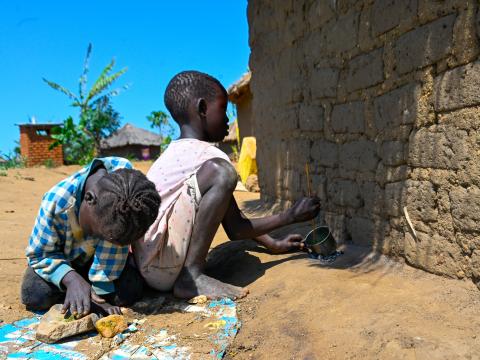
“I am hungry,” whispers six-year-old Nensa, her voice trembling as tears streak down her dust-covered cheeks. It is 4:00 PM in Bidibidi refugee settlement in northern Uganda. While many families are preparing their third meal of the day, Nensa and her siblings are unsure when or if they will eat at all.
Nensa, her sister, and two cousins last ate almost 24 hours ago. Their only caregiver, 60-year-old Joyce, their grandmother, has nothing to offer today.
Her son, the children’s father, was killed in the war in South Sudan. Her daughter is married and living in a different refugee settlement. The burden of raising and feeding the children now rests squarely on Joyce's frail shoulders.
Their home is silent, save for the crackling of small pieces of charcoal under a battered metallic saucepan. Inside it, Nensa has mixed a few edible leaves and water her attempt to make a meal.
“Whenever we get hungry, we look for anything that can be cooked,” she says as she stirs the murky concoction with a stick.
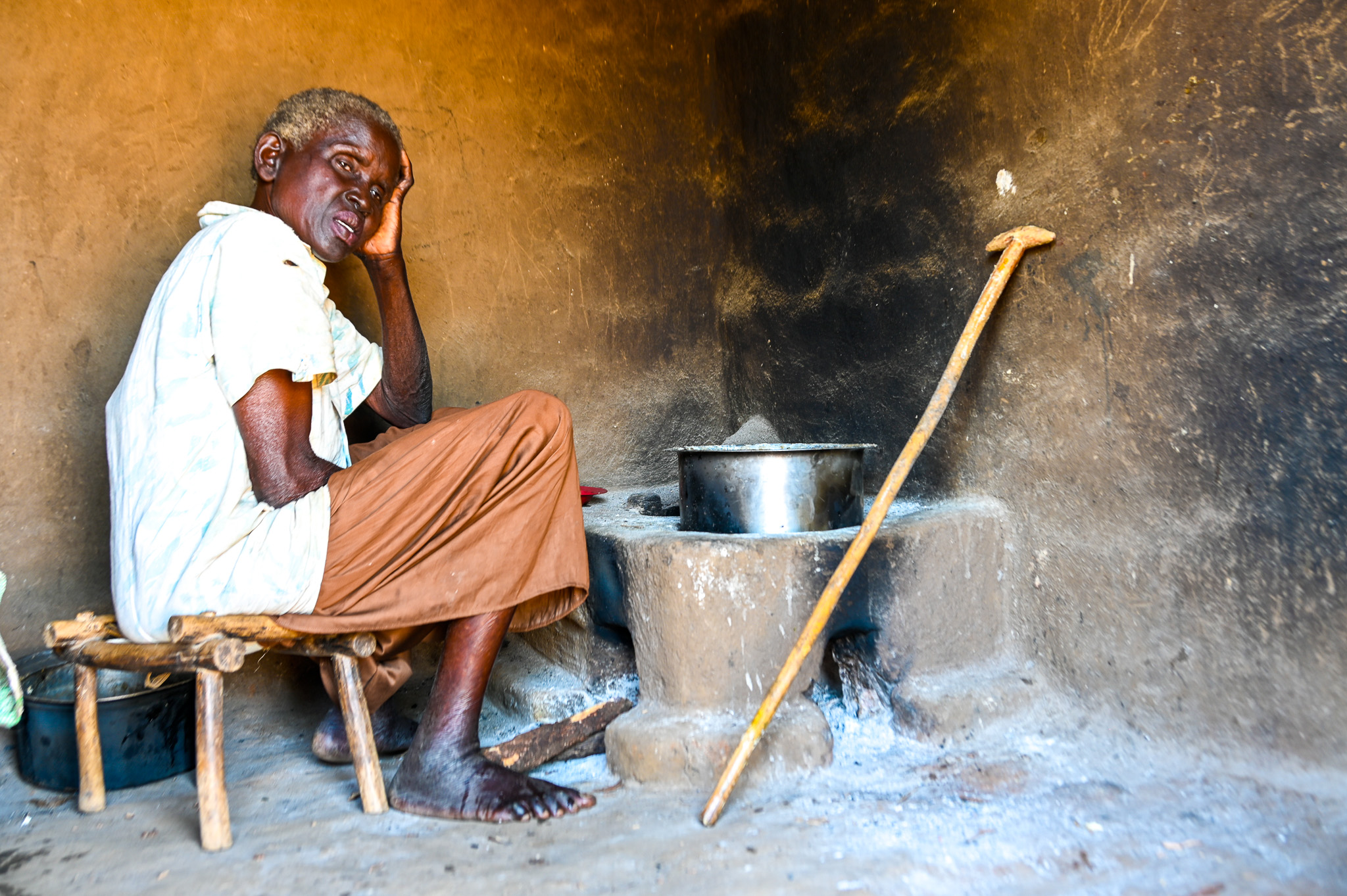
From Three Meals to None
Life wasn’t always this grim. The family once had regular meals, schooling, and a semblance of stability. That changed when Joyce was moved to Category Three, a classification by humanitarian agencies for refugees considered "averagely resilient." But in reality, many like Joyce are barely surviving.
“We cook once in the evening, around 6:00 PM, so that the children can sleep on full stomachs,” Joyce explains. “If there’s anything left, we keep it for the morning. But there are many days when there’s nothing at all.”
Their situation worsened when the children had to drop out of school. The family could no longer afford the 50,000 UGX (about $13) required for Parents-Teachers Association (PTA) fees. These charges were introduced to fill the funding gap after international support for refugee education was cut.
“Now we just help our grandmother find food,” Nensa says.
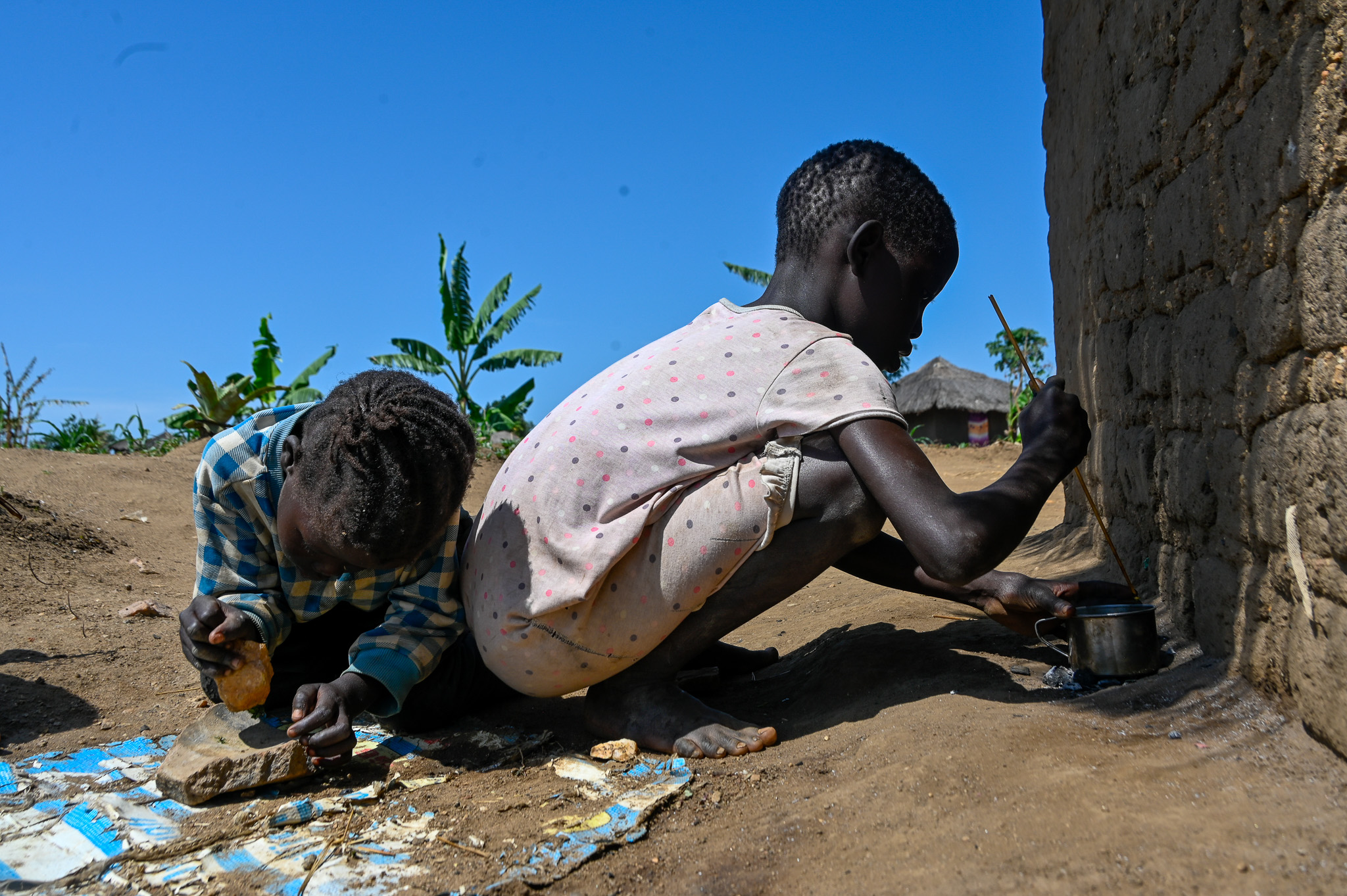
Childhood Traded for Survival
In Bidibidi Refugee Settlement, one of the largest in Uganda, the consequences of international aid cuts are dire. Nensa and other children spend their days fetching firewood for neighbors, doing garden work in the host community, and taking on manual jobs for a handful of maize or a cup of beans.
“We try all we can so we don’t sleep hungry,” she says with a forced smile that vanishes quickly.
Neima Grace, a refugee leader in the settlement, receives over 30 calls each day from fellow refugees reporting hunger, illness, and despair.
“People are desperate. Markets are empty. The crops we try to grow like cassava are dying under the hot sun. Some of our land is rocky and barren. It’s heartbreaking,” Neima explains.
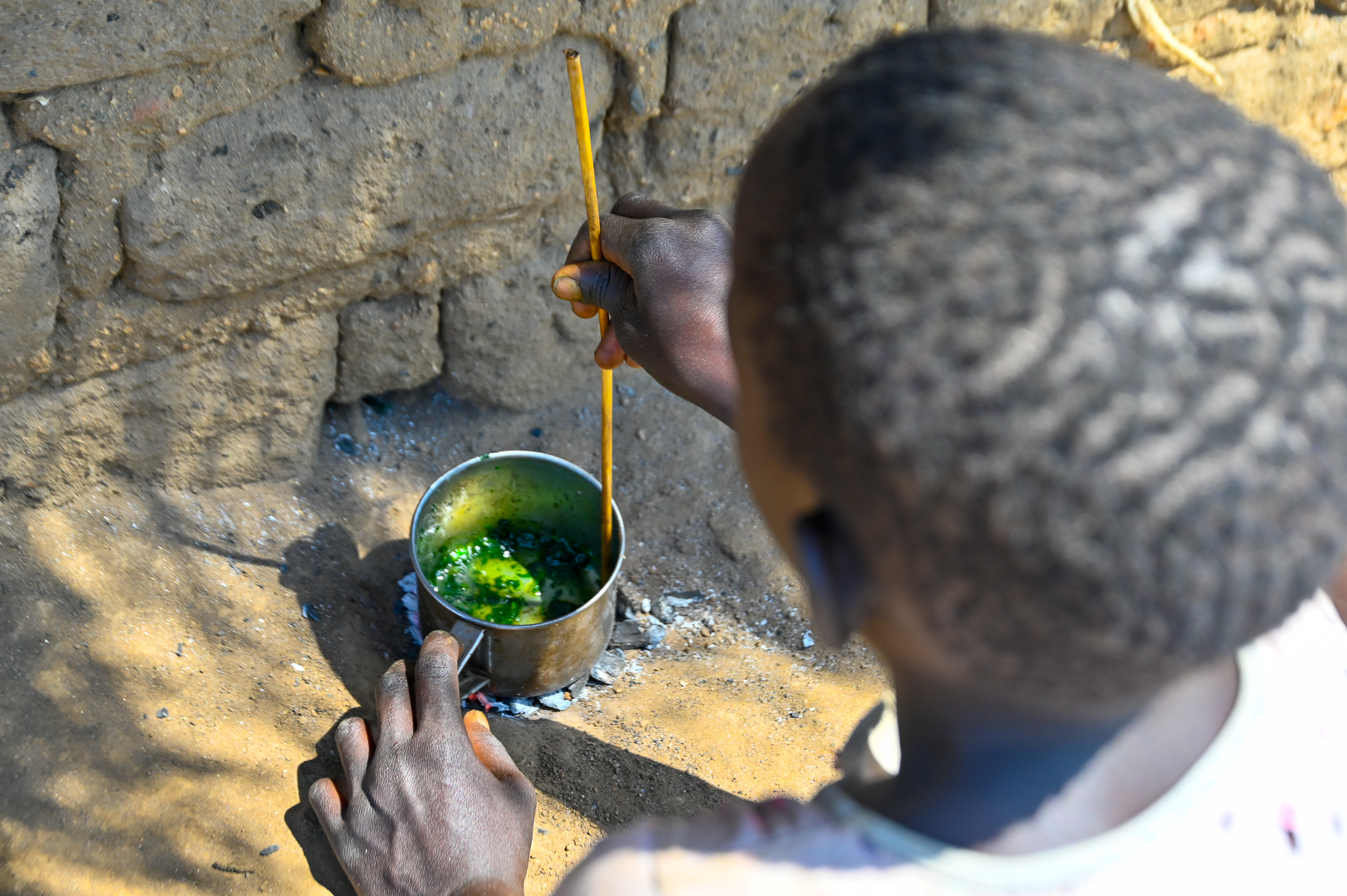
Funding Cuts Push Refugees Over the Edge
“These cuts have had catastrophic consequences,” says Paul Mwirichia, World Vision Uganda’s Refugee Response Director. “We are seeing a spike in child protection cases, more children are dropping out of school, more are being forced into labour, and malnutrition is rising at an alarming rate.”
Malnutrition is especially dangerous for children under five, where its impact can be lifelong or even fatal. Years of progress in fighting child hunger and safeguarding children’s rights are being eroded in months.
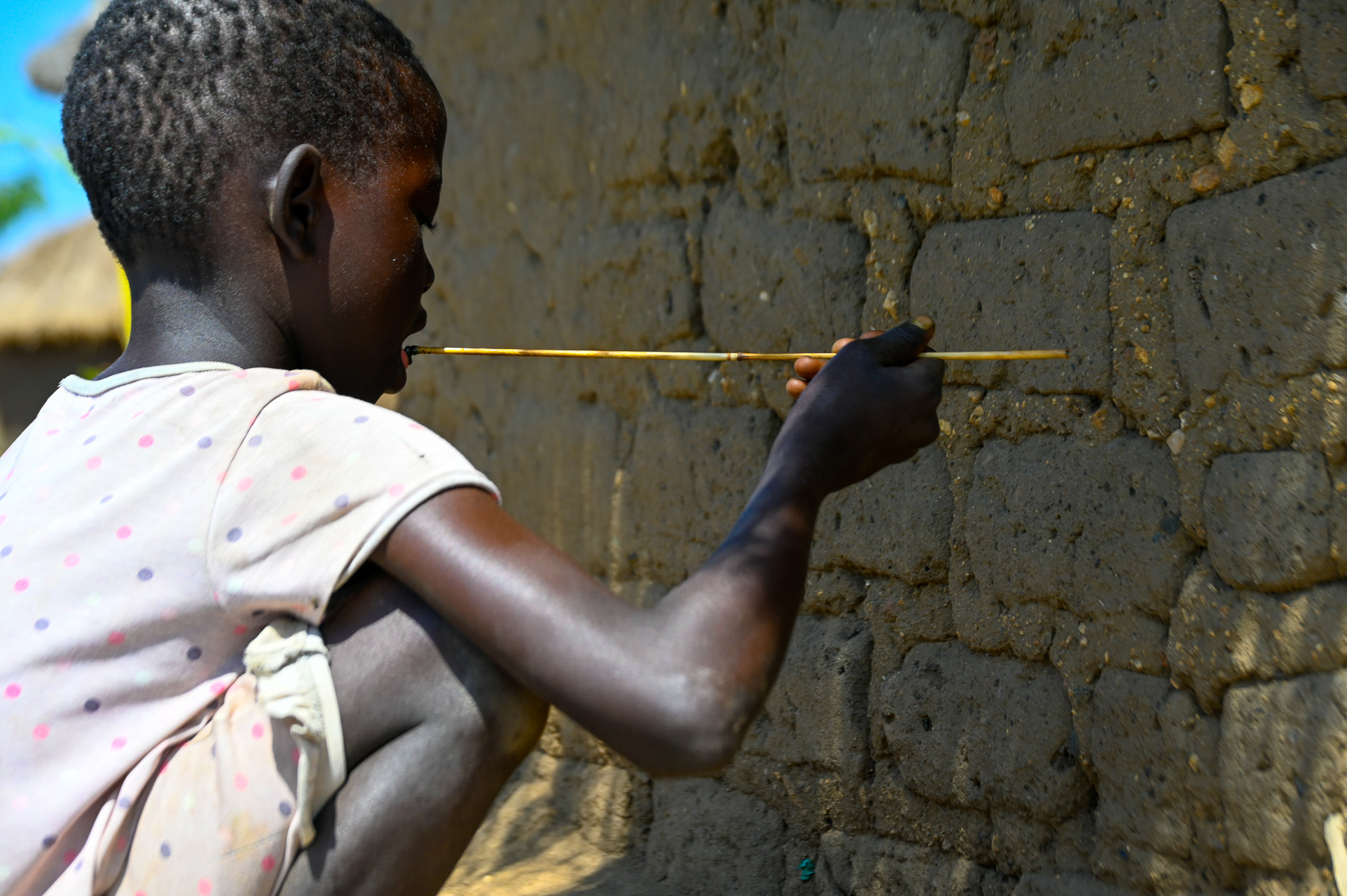
“This is a silent crisis,” Paul emphasises. “The world’s attention may have shifted, but the needs here have grown louder. If we don’t act now, we risk losing an entire generation of children to hunger, illiteracy, and trauma.”
Back in Joyce’s hut, the metallic saucepan with boiled leaves sits steaming. It’s not a meal, it’s a prayer. A symbol of the hope that somehow, tomorrow will be different. That food will come. That schools will reopen. That help will arrive.
Uganda hosts over 1.5 million refugees, the highest number in Africa. They are not just numbers. They are children like Nensa, women like Joyce, and families fighting each day to survive with dignity.
Their stories may never make global headlines. But they deserve to be heard.
Story by: Mungu Jakisa Brian- Communications Officer and Derrick Kyatuka- Communications Manager